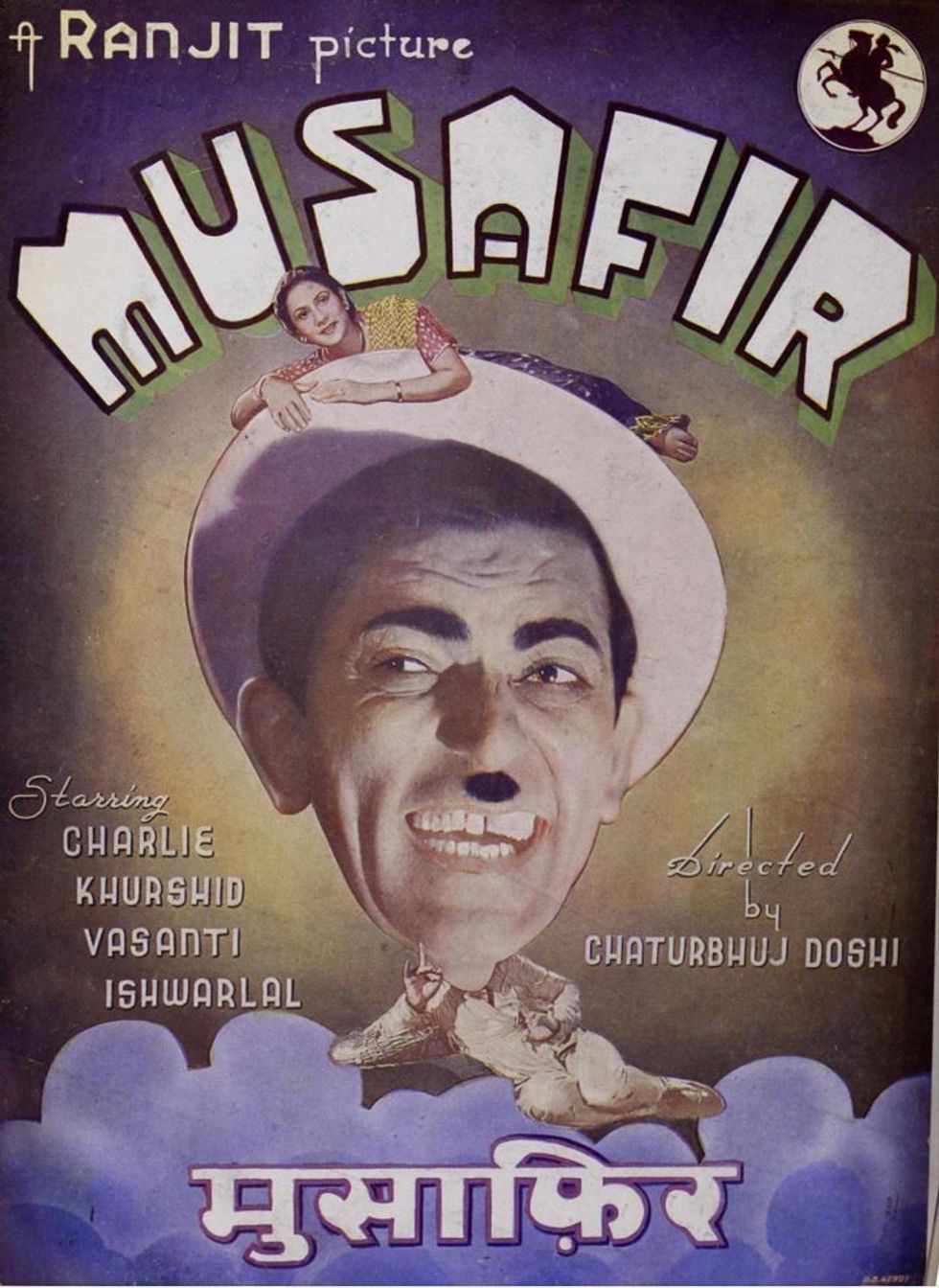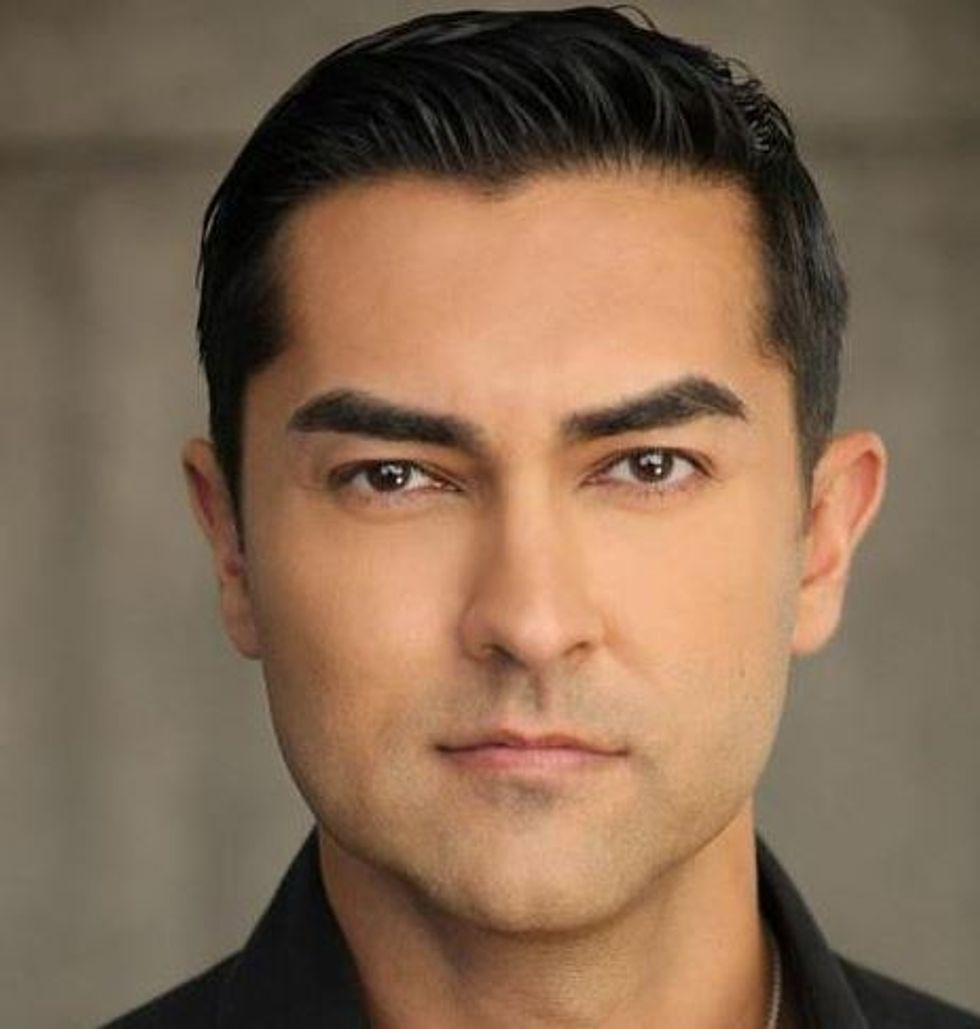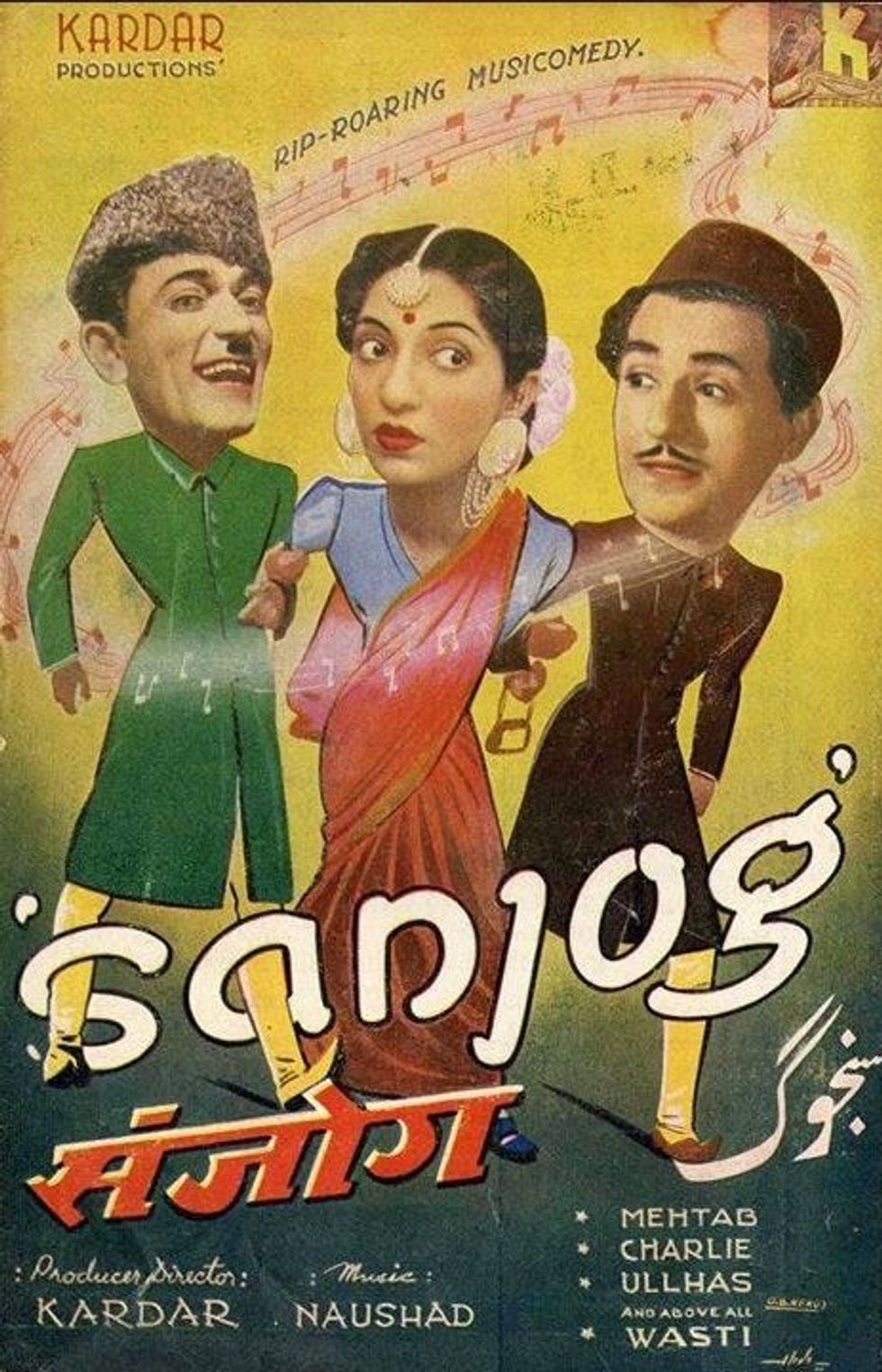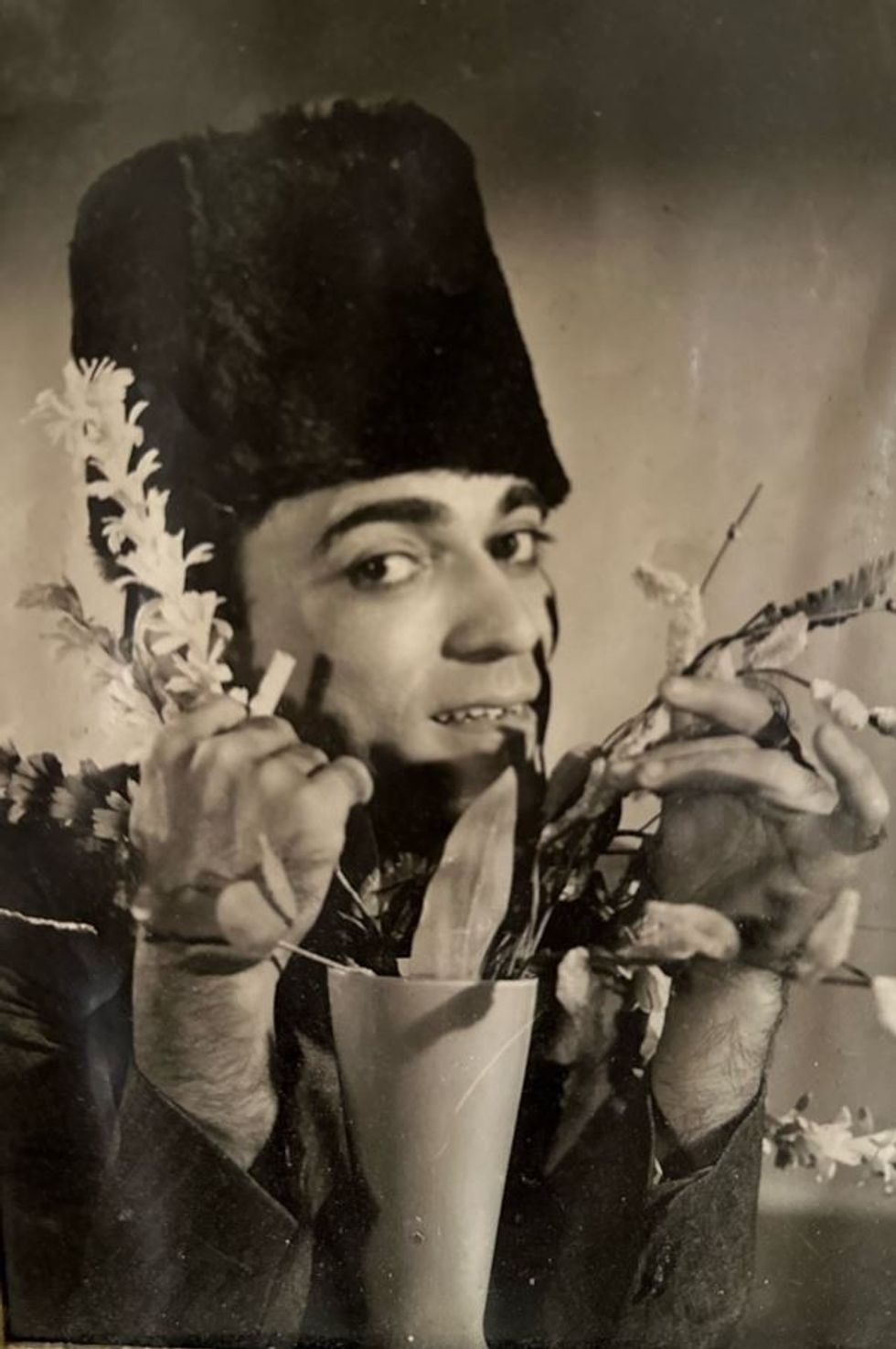WHETHER it was Mehmood, Johnny Walker, Johnny Lever or lead stars showing off their funny side, there have been many great comedians in Indian cinema across the decades.
But the first talented comedian was iconic actor Noor Mohammed Charlie. Armed with his trademark Charlie Chaplin moustache and a natural swagger, he changed the face of an industry dominated by musicals and melodramas, with laugh out loud entertainment.

Born on July 1, 1911, he passed away on June 30, 1983, aged 71, so this week marks his birth and death anniversary.
Eastern Eye decided to honour both occasions of a pioneering cinema giant who transformed Bollywood and then helped lay the ground for Pakistani cinema after partition, by charting his remarkable journey, with the help of his US-based actor and TV personality grandson Yawar Charlie.
Born into a conservative Memon family, in Ranavav, a small village in the Gujarat state of Porbandar, Noor Mohammed hated studying, so played truant from school. The youngster was immediately enthralled by the emerging cinema industry and would watch films whenever possible. He would get odd jobs like repairing broken umbrellas.

By the age of 16, the teenager with big dreams had left school and set his sights on the movies. He started working as a clapper boy for Imperial Film Company, after walking in and boldly claiming he was a great singer.
The die-hard Charlie Chaplin fan loved being in the bustling studio system and despite showing a great flair for comedy, he made his acting debut in the more dramatic, Krishna Film Company-produced Akalna Bardan (1928).
His high-energy antics inspired by slapstick Hollywood films hadn’t got unnoticed. After working in more dramatic movies, his first turning point came when he was signed by Elfin Film Company for The Indian Charlie in 1929. “Although that movie wasn’t released until 1933, it started his journey as an entertainer and comedian. It would lead him towards being re-christened as Noor Mohammed Charlie,” explained Yawar Charlie.
While a lot of silent stars were packed into retirement with the advent of talkies, the young actor immediately found fame with hit films like Zarina (1932), Premi Pagal (1933) and Chandrahasa (1933). He could act, speak the language, had a unique identity and a great singing voice, which was the perfect cocktail in the first decade of Indian talkies.
The massive success of these early talkies led him towards being signed by the esteemed Ranjit Movietone Studios in 1934, which resulted in hit films like Toofani Taruni (1934), Toofan Mail (1934), Musafir (1940) and many more, including Barrister’s Wife (1935), which had Hindi cinema’s first qawwali pictured on him. “His quick ascendancy within the studio led him to become the blue-eyed boy, and each film he worked on was an instant success. Such was his fame that (producer/director) Chandulal Shah released him from his contract, as his popularity began to eclipse his studio,” said Yawar.
Free from the studio system that held actors to ransom with a relatively low weekly salary, the all-round entertainer became one of the highest paid stars in Hindi cinema.
He was signed for films like Taqdeer (1943), which marked the movie debut as a lead of all-time great actress Nargis. “One of his first contractual signing for a substantial amount of 100,500 rupees was for the film Sanjog (1943), which was a resounding hit with Mehtab as the leading lady.”
The multi-talented star’s other many firsts included catchphrases that became popular. He also introduced method acting into Indian cinema and would train intensely for a part to make it look more real. He was also an accomplished musician and singer. He composed popular songs like Panchi Mera Kahe Mach’s Shor, which was based on an Italian opera. That million selling song saw him lend vocals to it, alongside famous singers Suriaya and Khursheed.

By the early 1940s, the magnificent movie star was unstoppable and made his directorial debut with Dandohra (1941), which he also produced and played a double role in. That movie would get one of the highest open weekends at the box office when it was released, such was the expectation. Charlie tried to push the limits of comedy in a conservative country in films such as Bansari (1943), which was labelled by some critics as obscene, but was ahead of its time. Yawar, explained: “It would have been easy for him to base his entire career around comedy, but he hated being in the comfort zone, so was always looking to cross new creative horizons, whether it was filmmaking, music, a new type of acting or new types of stories.”
Despite becoming a major power player and setting up a state-of-the-art studio, he migrated to Pakistan with his family and walked away from the considerable fame he enjoyed in India. Not one to disconnect himself from creativity, Charlie helped kickstart the Pakistani film industry. “My grandfather made a home in Lahore, where he starred in the Punjabi films Mundri (1949) and Beqarara (1950). Although Lahore didn’t entirely suit his taste, he purchased a Kodak agency. He also established cinemas, and even started a small jersey-weaving factory.”
He would act in Urdu, Punjabi, and Sindhi films like Umer Marvi (1956), opposite Meena Shorey, an actress who had also migrated to Pakistan after partition.
Although he left India in 1947, his influence remained with iconic comedians like Mehmood and Johnny Walker being greatly influenced by him. He made a return to India in the early 1960s and was persuaded to reignite his Bollywood connection with films like Mera Ghar Mere Bachche (1961) and Akeli Mat Jaiyo (1963). That comeback was short-lived because the Indian government wouldn’t give him citizenship and the heartbroken actor returned to Pakistan, to act in a few more Lollywood films.

The cinema legend eventually relocated to America and made a new life there with his family. He returned to Karachi to lay his wife to rest and passed away six months later, on June 30, 1983.
“He frequently went on religious pilgrimages to Haj and Umrah. He constantly embraced new experiences as he believed a world existed beyond cinema and the sub-continent. He encouraged others to explore that big wide world.”
Many of his films were remade, including Taqdeer being adapted as Duniya Ka Mela (1974), with Mehmood taking on Charlie’s role. Apart from those he influenced creatively, his legacy was continued by his famous Pakistani film and TV actor son Latif Charlie. His grandsons Yawar Charlie and Dino Latif continue that legacy, in acting, TV and radio. All the comedy that is present in Pakistani and Indian cinema can be traced towards the influence of Noor Mohammed Charlie.
















 Naeli and the secret song
Naeli and the secret song
 Jamie Lloyd’s Evita with Rachel Zegler set for Broadway after London triumphInstagram/
Jamie Lloyd’s Evita with Rachel Zegler set for Broadway after London triumphInstagram/
 A compelling premise, layered and unpredictable charactersAMG
A compelling premise, layered and unpredictable charactersAMG Anyone who enjoys a gripping story with a diverse cast and unexpected twistsHarperFiction
Anyone who enjoys a gripping story with a diverse cast and unexpected twistsHarperFiction
 The Story Teller by Ley Roberts
The Story Teller by Ley Roberts Summer Exhibition coordinator Farshid Moussavi, with Royal Academy director of exhibitions Andrea Tarsia in the background
Summer Exhibition coordinator Farshid Moussavi, with Royal Academy director of exhibitions Andrea Tarsia in the background An installation by Ryan Gander
An installation by Ryan Gander A sectional model of DY Patil University Centre of Excellence, Mumbai, by Spencer de Grey
A sectional model of DY Patil University Centre of Excellence, Mumbai, by Spencer de Grey Rituals and Identity and Theatre of Resistance by Arinjoy Sen
Rituals and Identity and Theatre of Resistance by Arinjoy Sen